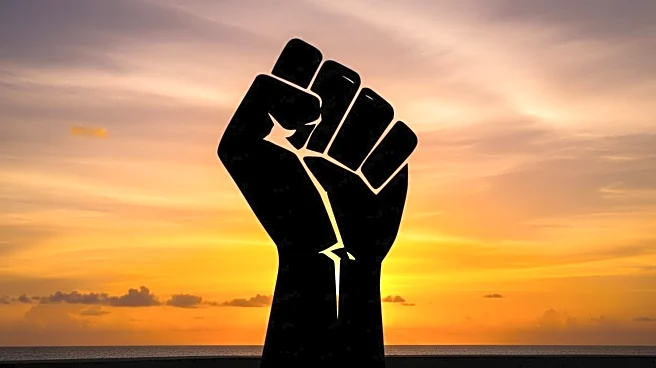What's Happening?
Assata Shakur, a former member of the Black Liberation Army and a fugitive with a $2 million reward from the FBI, has died in Havana, Cuba. Shakur, also known as Joanne Chesimard, was granted political asylum by Fidel Castro in 1984 after escaping from a New Jersey prison in 1979. She was convicted for her involvement in a 1973 shootout on the New Jersey Turnpike that resulted in the death of a state trooper. Shakur claimed she was targeted by the FBI as part of a campaign against black militant organizations. While in Cuba, she wrote books and appeared in documentaries, resisting U.S. efforts to extradite her. In 2013, she became the first woman on the FBI's most wanted terrorists list.
Why It's Important?
Shakur's death marks the end of a long-standing symbol of resistance and controversy between the U.S. and Cuba. Her asylum in Cuba has been a point of contention, contributing to strained relations between the two countries. Shakur's case has been used by anti-Castro activists to argue for Cuba's inclusion on the U.S. State Department's list of state sponsors of terrorism. Her story highlights ongoing debates about political asylum, extradition, and the legacy of black militant movements in the U.S. The FBI's pursuit of Shakur underscores the complexities of international law and diplomacy.
What's Next?
With Shakur's passing, discussions may arise regarding the status of other U.S. fugitives in Cuba and the broader implications for U.S.-Cuba relations. The U.S. may reassess its stance on Cuba's designation as a state sponsor of terrorism, potentially impacting diplomatic negotiations. Activists and historians may continue to explore Shakur's legacy and its influence on contemporary social justice movements. The Cuban government may face pressure to address the presence of other fugitives on its soil.
Beyond the Headlines
Shakur's life and death raise questions about the ethics of political asylum and the treatment of political dissidents. Her story reflects broader themes of racial justice, government surveillance, and the struggle for civil rights. The cultural impact of Shakur's legacy, particularly in the context of black liberation, may continue to inspire future generations. Her connection to Tupac Shakur adds a layer of cultural significance, intertwining her narrative with broader discussions on race and resistance in America.










